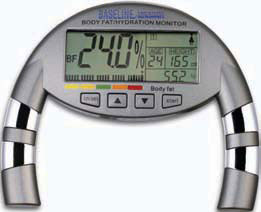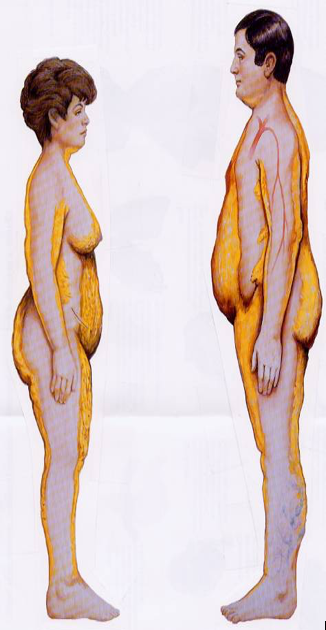Body Fat Analyzers for Testing Body Composition

The assessment of an individual’s percent of body fat, as well as their amount of lean body mass, is a critical measure of health and well-being. Obesity, the excessive accumulation of body fat, called adipose tissue, is associated with an increase in the risk for certain diseases such as heart disease, diabetes, hypertension, certain cancers, and various musculoskeletal conditions such as osteoarthritis of the weight bearing joints.
Further, the composition of a person’s body – body fat and lean body mass – can provide information related to athletic performance, feedback on the effects of diet and exercise on weight loss efforts and can serve as a good motivator toward reaching a healthy percent body fat.
In the skilled hands of a healthcare provider, conditioning coach, trainer, etc., the ability to quickly and non-invasively assess a person’s body fat percentage enables them to evaluate the effects of training regimens, dietary plans, behavioral modification strategies, and make recommended adjustments or encourage continued successful interventions toward the benefit of their patients, clients, or athletes.
Body Fat Assessment Methods
There are different protocols and devices used to assess body composition (fat and lean body mass), the two most common being bioelectrical impedance and skinfold measurements.
Tools Used in the Assessment of Body Fat (Body Composition)
-
Skinfold calipers
-
Handheld Body Fat Analyzers
Fat
Essential Fat – required for normal physiological functioning. Located in cell membranes, myelin sheath, bone marrow, internal organs, etc.
– Males: 3%
– Females: 12% (9% sex characteristic)
Non-Essential Fat – storage of excess calories in adipose cells/tissue. Located:
a. Subcutanteious
b. Intra-abdominal
c. Intermuscular
Metabolically active: A pound of fat is approximately ¼ as metabolically active as one pound of muscle tissue.
Fat Free Mass (Lean Tissue)
All non-fat tissue such as bone, muscle, water, organs, connective tissue, etc.
-
The FFM of a human body is assumed to be 73.8% water, 19.4% protein, & 6.8% mineral.
Metabolically active: The addition of one pound of muscle increases basal metabolism by approximately 7-12 calories.

ProHealthcareProducts.com carries top quality products to assess body fat as well as other body composition measures important to health and fitness.











